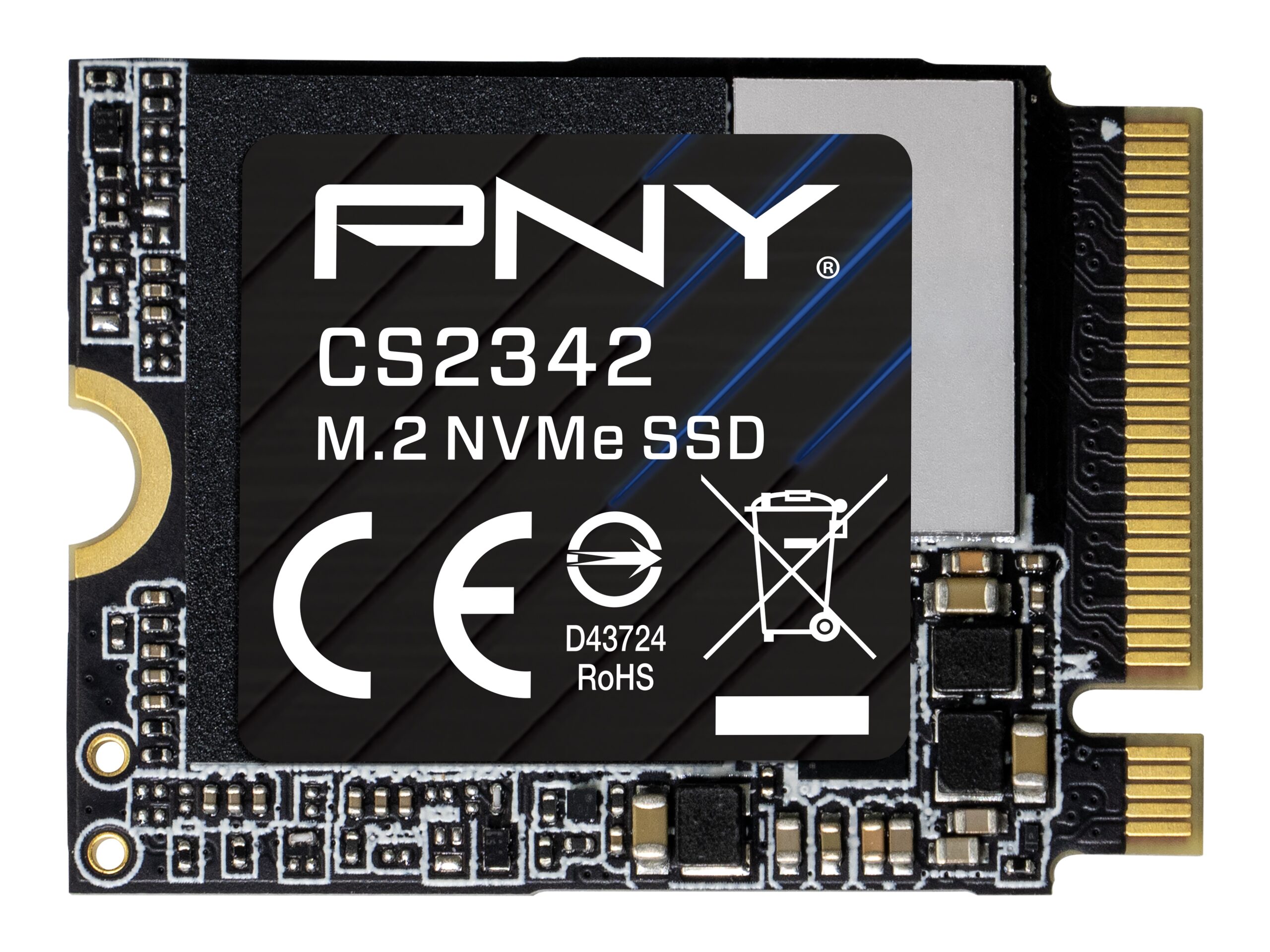
PNY CS2342 M.2 2230 NVMe PCIe Gen4 x4 SSD delivers fast speeds in a tiny package
PNY has announced its latest solid state drive -- the diminutive CS2342. This M.2 2230 NVMe PCIe Gen4 x4 SSD is impressively fast, with read speeds hitting up to 7,300MB/s and write speeds reaching 6,000MB/s.
Available in 1TB and 2TB capacities, the CS2342 is primarily designed for gamers looking to upgrade devices like the Steam Deck, ASUS ROG Ally, or MSI Claw. With that said, it’s not only compatible with gaming handhelds -- this drive will technically also work in laptops and desktops.
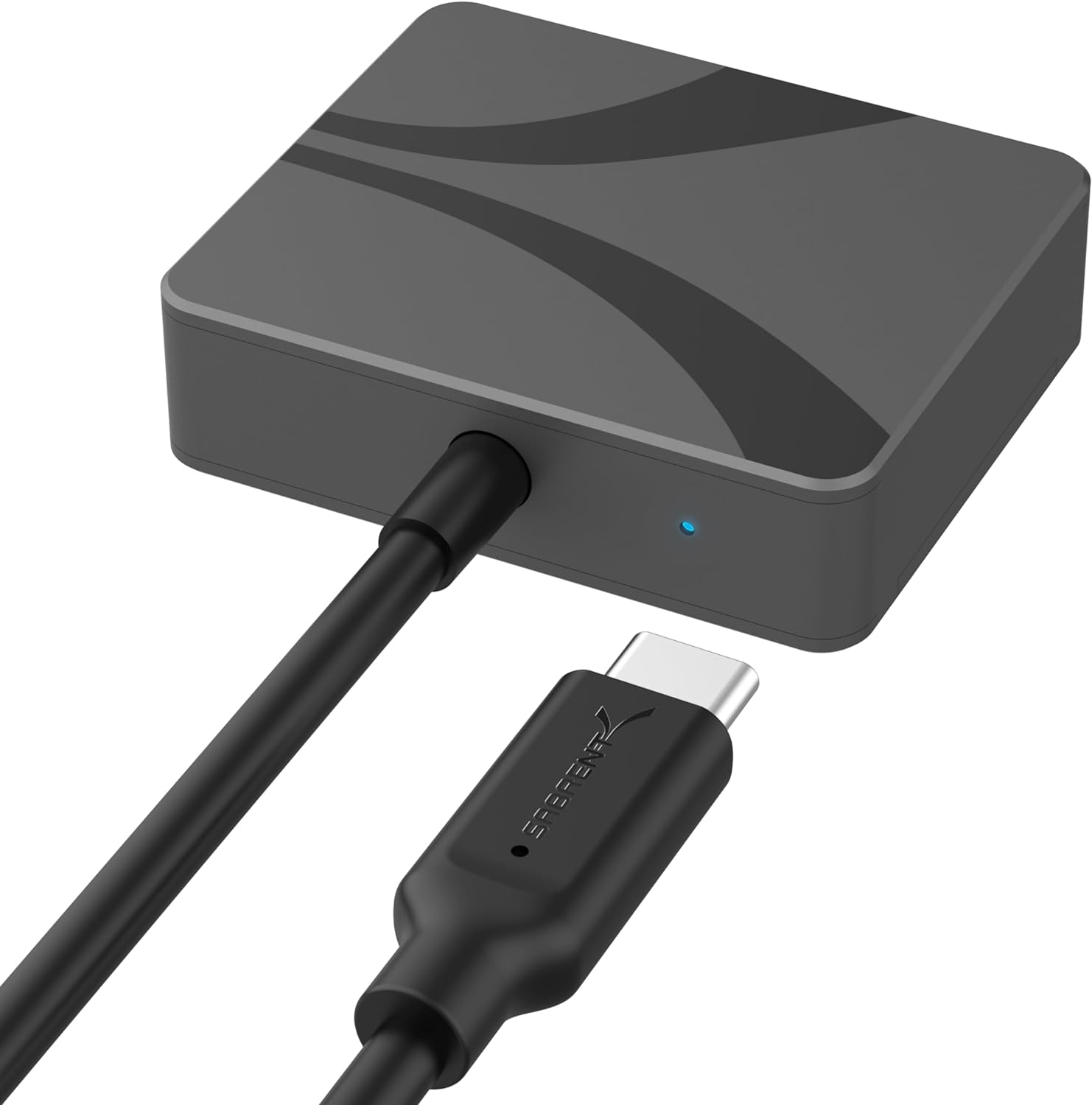
Sabrent USB-C Enclosure for M.2 2230 PCIe NVMe SSDs simplifies upgrading Steam Deck, ASUS ROG Ally, Surface Pro 9, and more
Sabrent’s USB-C Enclosure for M.2 2230 PCIe NVMe SSDs (EC-NE30) offers a straightforward solution for handling your compact drives. Whether you need to prep an M.2 2230 SSD for your Steam Deck, ASUS ROG Ally, Surface Pro 9, or other portable gadgets, this enclosure has you covered.
How does it work? Simply insert the SSD, secure it with the latch, and connect via USB-C. This versatile enclosure is compatible with all major operating systems, including Windows, macOS, and Linux-based options, ensuring hassle-free setup with its integrated cable and plug-and-play functionality—no drivers needed.
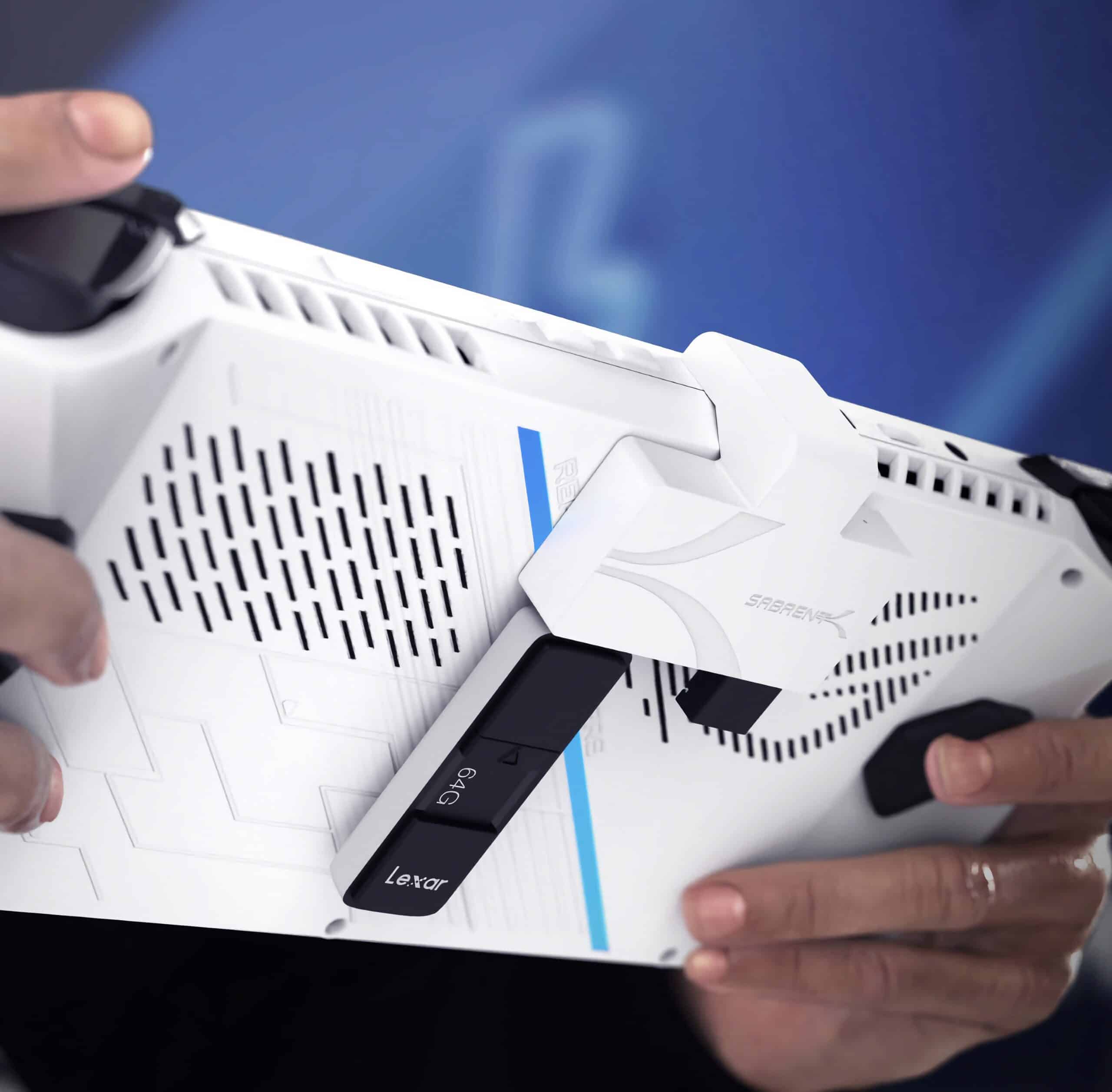
Enhance your ASUS ROG Ally with the SABRENT HB-ROAY USB Type-C 3-Port Gaming Hub
When it comes to portable gaming, the ASUS ROG Ally is a powerhouse. But what if you could make it even better? Enter the Sabrent USB Type-C 3-Port Gaming Hub (HB-ROAY). This sleek, form-fitted accessory is designed specifically for the ASUS ROG Ally, offering a perfect blend of functionality and portability.
The Sabrent Gaming Hub is a plug-and-play device, meaning no drivers are needed. Simply attach it to your ASUS ROG Ally and enjoy immediate access to multiple ports. This hub features two USB-A ports, ideal for connecting portable storage, keyboards, mice, and more. Additionally, it includes an upstream USB-C port that connects directly to the Ally, providing high-speed data transfer at up to 5Gbps (USB 3.2 Gen 1x1).
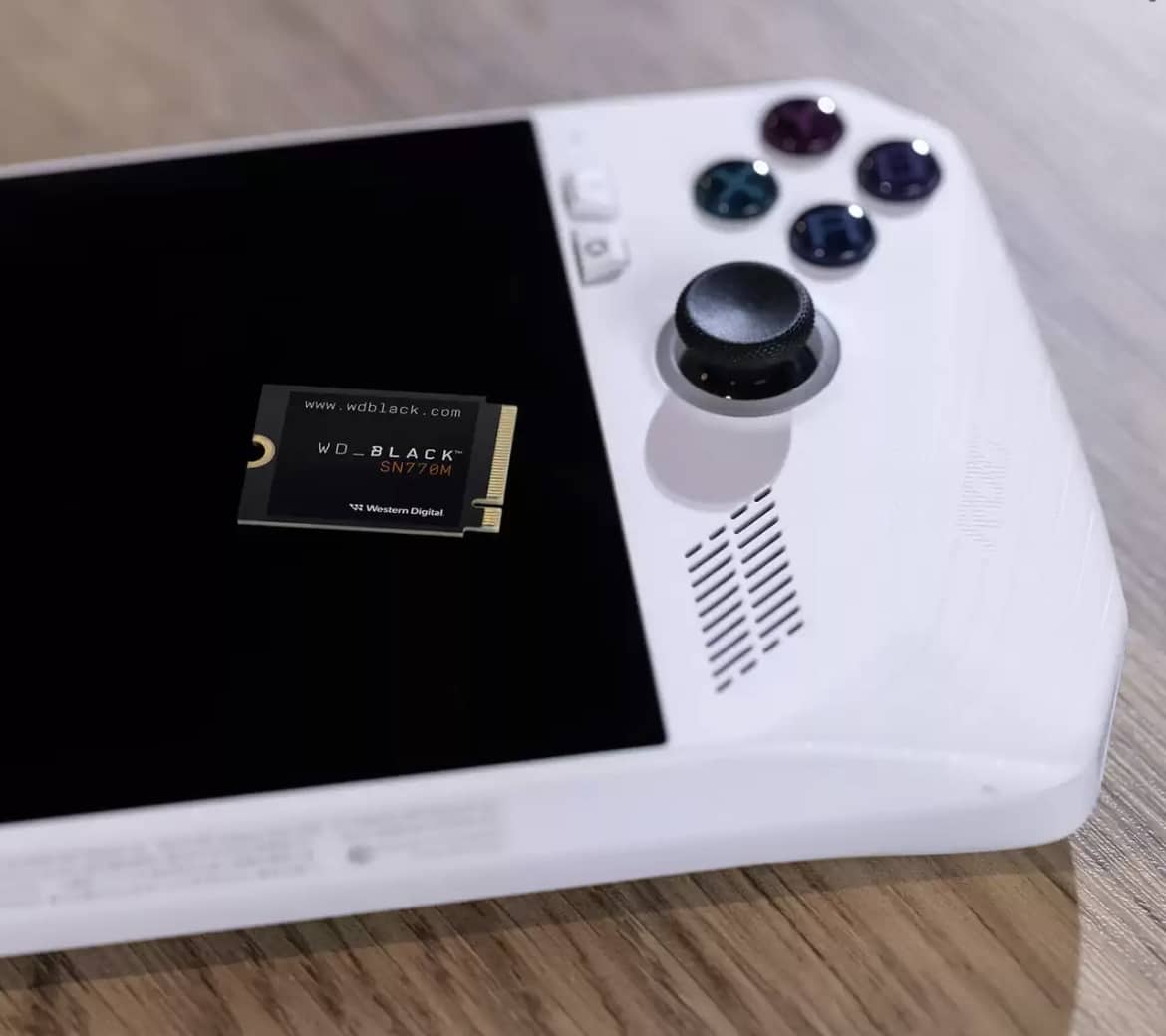
Western Digital launches WD_BLACK SN770M M.2 2230 SSD for handheld PC gaming devices like Steam Deck and ASUS ROG Ally
Western Digital has rolled out a top-tier, high-functioning M.2 2230 SSD specifically tailored for handheld PC gaming devices under its WD_BLACK branding. Called “SN770M,” this NVMe SSD is very fast and offered in several capacities. Owners of Steam Deck, ASUS ROG Ally, and similar devices will want to check this drive out.
Designed in a compact M.2 2230 form-factor, the WD_BLACK SN770M NVMe SSD offers gamers an opportunity to increase their handheld gaming PC's internal storage, ensuring they carry their expansive game collection wherever they wander. The drive boasts a myriad of features, ranging from PCIe Gen 4.0, Western Digital's nCache 4.0 tech, to Microsoft's DirectStorage support, propelling game installations and level loads with an impressive speed of up to 5,150 MB/s.
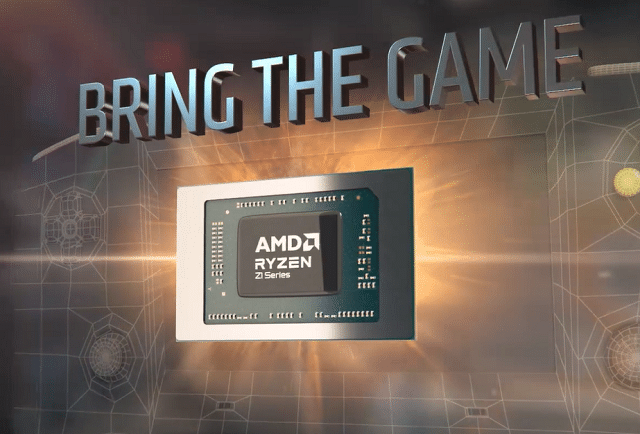
AMD Ryzen Z1 Series processors make Valve's Steam Deck obsolete
Valve's Steam Deck is a very popular handheld computer that allows people to play modern PC games on the go. Powered by a Zen 2-based AMD APU, Steam Deck also makes a great emulation machine. The Linux PC can play thousands of ROMs from classic consoles, such as N64, PS1, and more. Hell, it can even run modern Nintendo Switch games!
Unfortunately for Valve, the Steam Deck is about to become obsolete. You see, earlier today, AMD launched its all-new new Zen 4-based Ryzen Z1 Series processors. These chips are designed to provide a high-end gaming experience for handheld PC consoles. Make no mistake, the gaming systems powered by Z1 will make the current Steam Deck old hat.
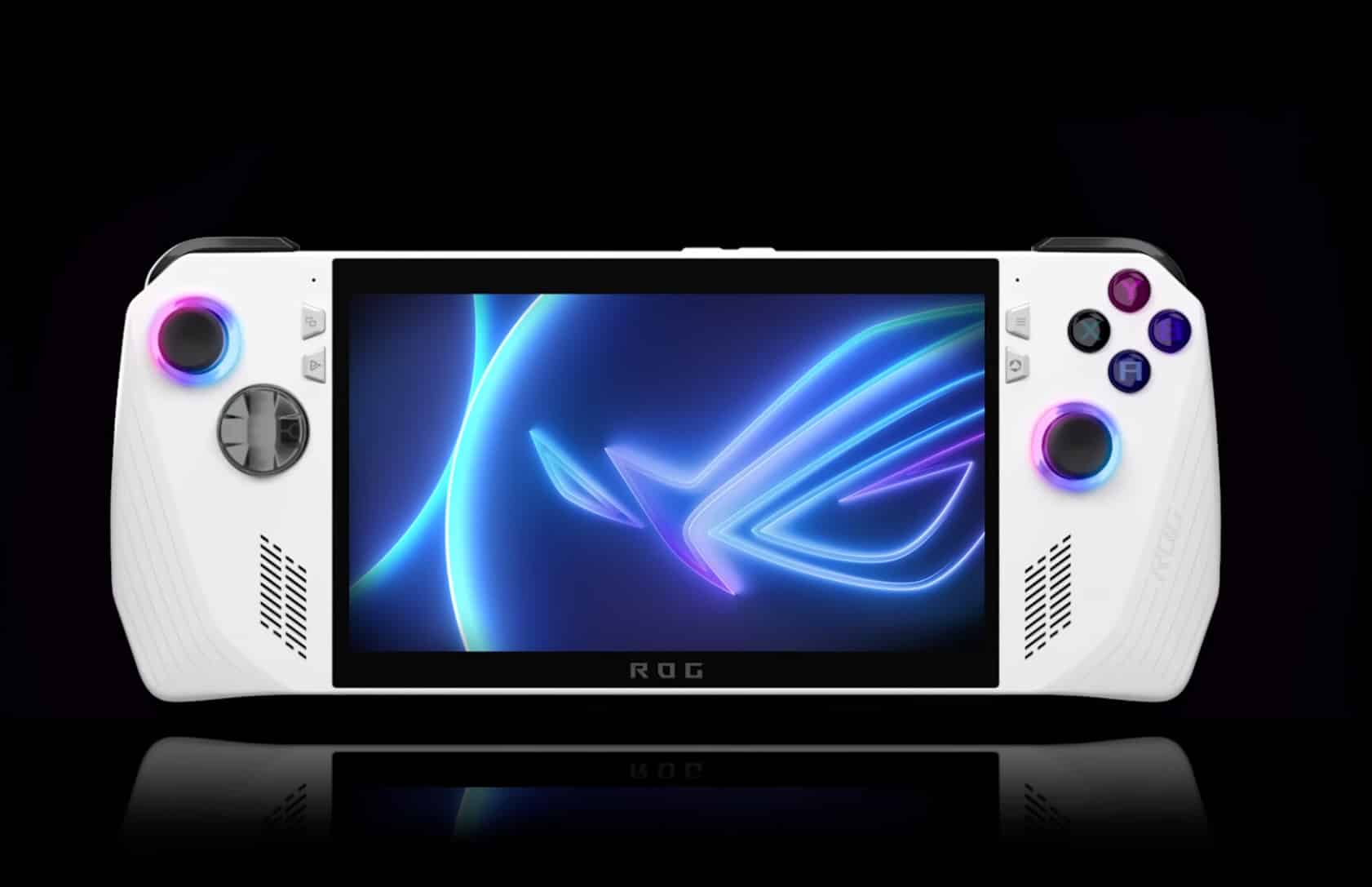
Are Windows gaming handheld devices the next big thing?
When you think about gaming on a handheld device that is running Windows, Steam Deck may be the first device that comes to your mind. It is developed by Valve, maker of Steam, and optimized for running Steam games.
It is available in three different versions and costs between $400 to $700, based on the selected version. The main difference is storage, with the two higher priced versions using NVMe SSDs and the entry level version eMMC.
